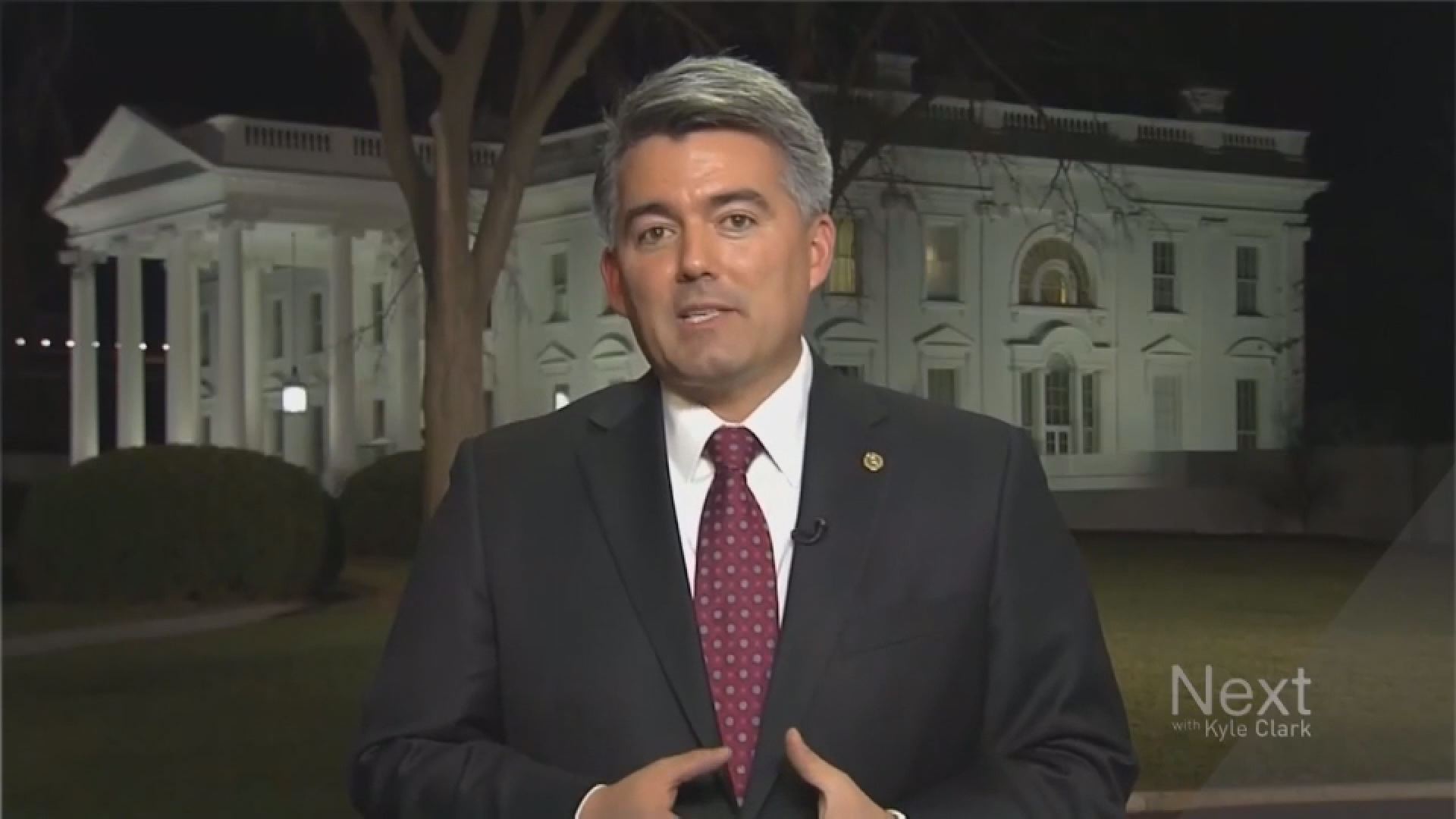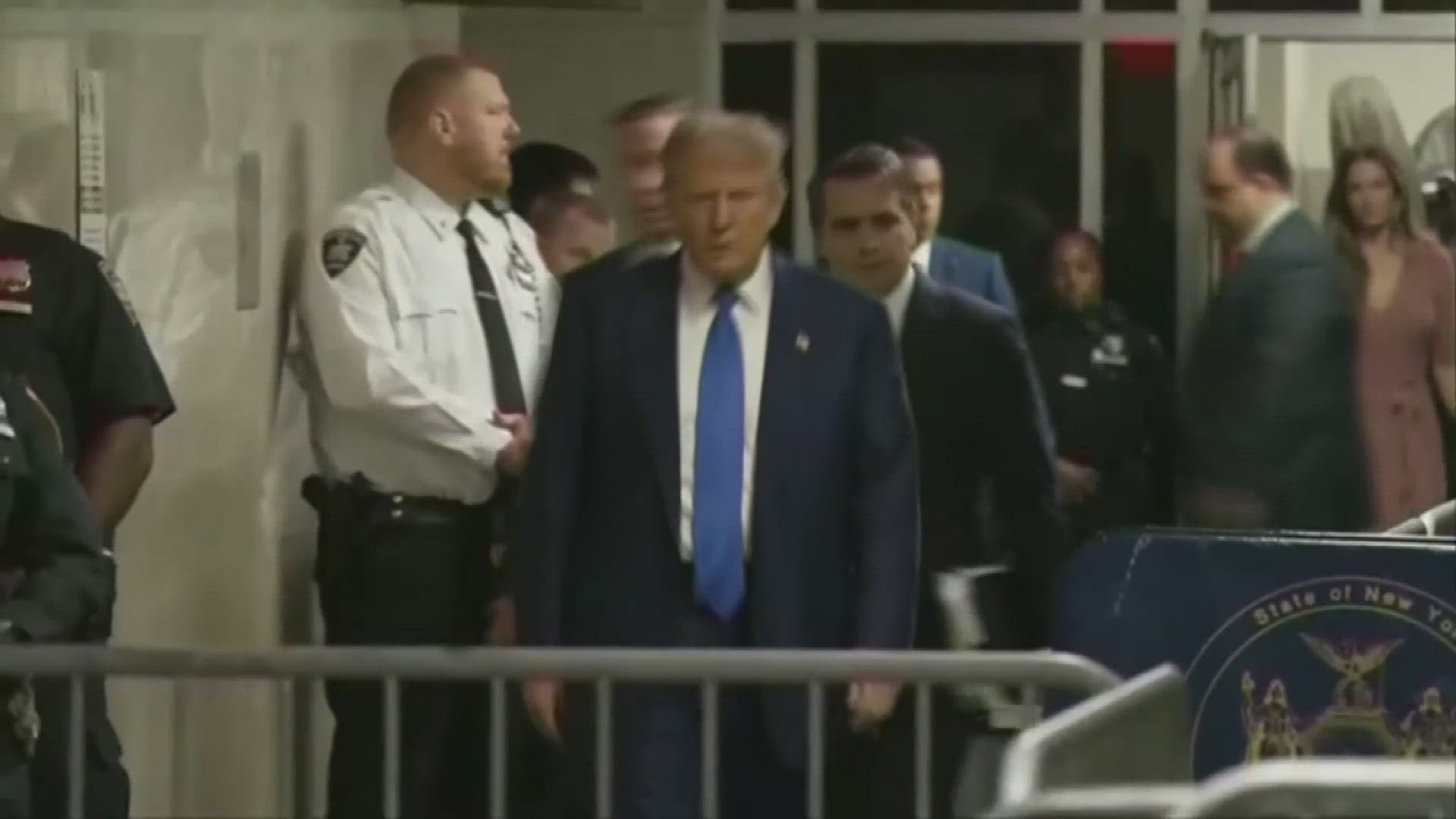U.S. Senator Cory Gardner (R-Colorado) has put himself in an interesting spot on healthcare.
He never said how he planned to vote on the Senate’s healthcare bill before it died -- even though he was on a small group of senators working on it.
“Senator Gardner was still reviewing the legislation … ,” spokesperson Casey Contres told 9NEWS Tuesday afternoon. “He was actually scheduled to meet with [Centers for Medicare and Medicaid Services] Administrator Seema Verma today to discuss several aspects of the bill and its impact on Colorado.”
Now it looks like the Senate could vote on a straight repeal of Obamacare.
Contres said Gardner’s not sure about that vote either because there isn’t any text for it yet.
But Colorado’s junior senator indicated he might not favor a straight repeal during a recent radio interview with Dan Caplis on KNUS.
“I think that if you repeal it now, with nothing in its place, what happens if you don’t find that replacement,” Gardner said to Caplis. “What happens if you don’t reach that agreement? And I think that we ought to move forward with an idea now, and put a solution forward to the American people.”
That appears in contrast with his previous votes for a straight repeal.
Let’s be clear though. Gardner's never been for Obamacare.
The first vote he had on it in Congress came in 2011 when he voted for full repeal in the U.S. House of Representatives, promising that month "to get to work on legislation replacing the President's healthcare law."
That was six years ago.
Fast forward past a bunch more house votes against the Affordable Care Act to 2015. Gardner's first year in the Senate.
On Dec. 3, Gardner voted with Senate Republicans to repeal Obamacare without replacement. When then President Barack Obama vetoed the bill, Gardner issued a statement saying Obama "chose politics over policy."
But in 2016, the politics changed for Gardner.
He found himself in a Republican majority that controlled both houses of Congress and the White House. And it became time to actually do the repeal of Obamacare.
That's when Gardner started to back away from voting to repeal without replacing.
He signed a letter in March saying "a gradual transition is needed" to protect the people who got expanded Medicaid under Obamacare.
That brings us back to two weeks ago when Caplis asked Gardner where he stood on "repeal and replace later, separately” when Gardner said he wasn’t so sure that’s a good idea anymore.
Gardner stood an arm's length from Senate Majority Leader Mitch McConnell (R-Kentucky) for Tuesday’s announcement that he lacked the votes to pass his repeal and replace plan.
“It's pretty clear that there are not 50 Republicans at the moment to vote for a replacement,” McConnell said.
Now McConnell is floating the idea of a do-over of the successful repeal but not replace vote from 2015.
Gardner was for it back then, but would he cast that same vote today now that there's a new President who would sign it?


